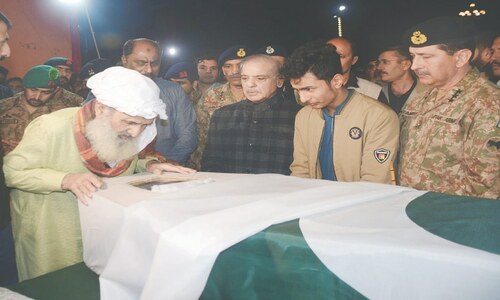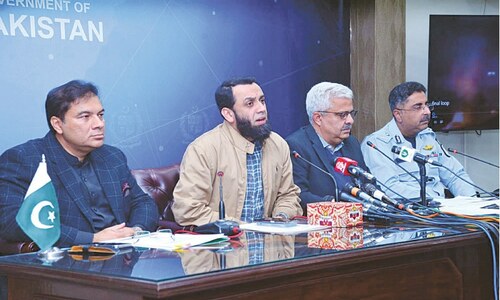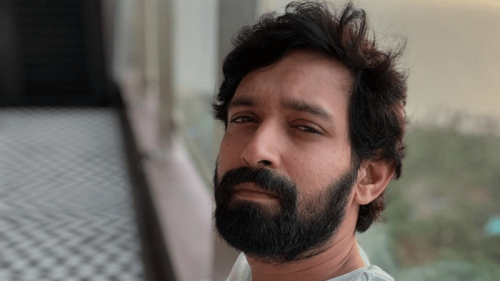ISLAMABAD, May 29: Prime Minister Syed Yousuf Raza Gilani has blamed an ‘unholy alliance’ in the military leadership and a class of politicians, bureaucrats and affluent members of the civil society for the gloomy state of affairs in the country.
“This deadly alliance has not allowed the people of Pakistan to establish and consolidate a democratic structure,” the prime minister said at the National Defence University (NDU) on Thursday.
He said the country was facing serious challenges on national as well as international fronts because of lack of respect for the Constitution, parliament, democratic norms, rule of law, independence of the judiciary and free and responsible media.
Mr Gilani said the nation had to pay a high price for frequent military forays into politics. The price was enormous and it was also paid by all stakeholders of the state.
He said the armed forces belonged to the people of the country and were admired and loved by them but the feelings turned into disapproval and aversion when they interfered in political affairs.
He said military rule was like a pyramid and the army and its collaborators at the top got increasingly isolated from the rest of the people who held them responsible for all the ills.
He said military rule also caused polarisation. “New divisions are added to the existing divisions: between the civil and military bureaucracy, between those who collaborate with military rulers and those who oppose them, and among the regions and minorities who do not feel genuinely represented. Consequently, the military gets the blame, not only for the wrongs it commits but also for those that it does not.”
He said military rule could not provide the relief expected by people and, over time, the masses started regarding the army along with the politicians, the bureaucracy, the feudal elite and entrepreneurs as yet another ruling class. Mr Gilani said it was highly encouraging to note that there was a realisation on the part of the new military leadership that the country needed to be ‘de-garrisonised’.
He expressed the hope that the process of de-militarisation of civil institutions would continue and be completed soon.
He said the nation was proud of its armed forces and “we would like to see them confined to garrisons, preparing themselves for guarding the geographical frontiers and combating external as well as internal threats under the civilian authority”. He said the nation expected the military leadership to identify and follow the true role of the armed forces. The entire nation would stand behind such an army, he said.
He said that despite serious constitutional controversies surrounding some key state institutions, the political process of dialogue and accommodation was continuing. “I sincerely hope that we will be able to overcome the controversies surrounding our key institutions as quickly as possible in order to bring our focus to real issues,” he said.
The prime minister said the government would not let down the expectations of the masses who had given a clear mandate in favour of the democratic forces. The country would see a change in the system and improvement in the standard of living of the people.
He said Pakistan was facing several challenges related to food, energy and water security, population growth, infrastructure, knowledge and skill deficiencies, unemployment, resource constraints, research and development inadequacy, sectarianism and ethnicity, extremism and terrorism.
He stressed that the only course available to overcome the challenges was adherence to the democratic process and it must be allowed to function on a sustained basis.
“We cannot afford any new experiment or adventure,” he said.
He said the government was trying to set the economy right.
He said the country’s relations with all the nations would be promoted on the basis of equality. The foreign policy would focus on furthering the country’s economic interests.
The prime minister said the government’s first priority was to restore peace and eliminate terrorism because the issues were endangering national security.
He expressed the hope that the socio-economic and political initiatives taken by the government would marginalise the extremist elements which thrived in an environment of deprivation, poverty and ignorance.
He said Pakistan believed in maintaining minimum credible deterrence and national security would always remain the highest priority of the government.
As a responsible, declared and acknowledged nuclear power, Pakistan would continue to play a positive role in international efforts aimed at non-proliferation, he said.
Meanwhile, in an interview to PTV, Prime Minister Gilani said he had asked US President George W. Bush to lift all sanctions imposed on the country after the declaration of a state of emergency last year.
He said he had raised the issue of resumption of economic and defence assistance with the US president during their meeting in Egypt last week. “I asked him to remove all the sanctions imposed on Pakistan in the wake of the emergency,” he said. “The people should get democracy’s dividends.”
However, Foreign Office spokesman Mohammad Sadiq told Dawn that, to his knowledge, the democracy-related sanctions imposed in November last year had already been lifted. He said the premier might have mentioned some sanctions on basis of a briefing.
Prime Minister Gilani said he had convinced President Bush about Pakistan’s efforts and strategy to combat terrorism. He said he had told the US President that his country should strengthen Pakistan’s ability to counter terrorism.
He said Pakistan was fighting the war on terrorism in its own interest and not for the United States. “It’s our war as it affects our society as well.”
In reply to a question, he said it was solely the responsibility of Pakistan government to control the tribal areas.
He said the government had appealed to the world to assist Afghanistan so that about three million Afghan refugees could return to their homeland.
He said the government was holding dialogue with those people who were renouncing violence. “The dialogue is only with peace-loving people.”
He said the proposed 62-point constitutional package was aimed at correcting the imbalance created in the powers of parliament and other state institutions through various amendments, particularly the 17th Amendment.
He said it was for the first time that the party leadership and government’s top post were in different hands.
Prime Minister Gilani said he wanted the deposed judges to be reinstated but some legal and constitutional matters needed to be sorted out.
He said that when the coalition parties moved along together, there would be political stability, and political stability led to economic stability.
When asked if a power struggle was going on between the president and parliament, the prime minister said the issue was getting unnecessary attention.
“I think the president will respect the majority’s decision and mandate of the people. We should all respect the mandate given by the people,” he said.
“We have to restore the Constitution of 1973,” the prime minister said.














































Dear visitor, the comments section is undergoing an overhaul and will return soon.